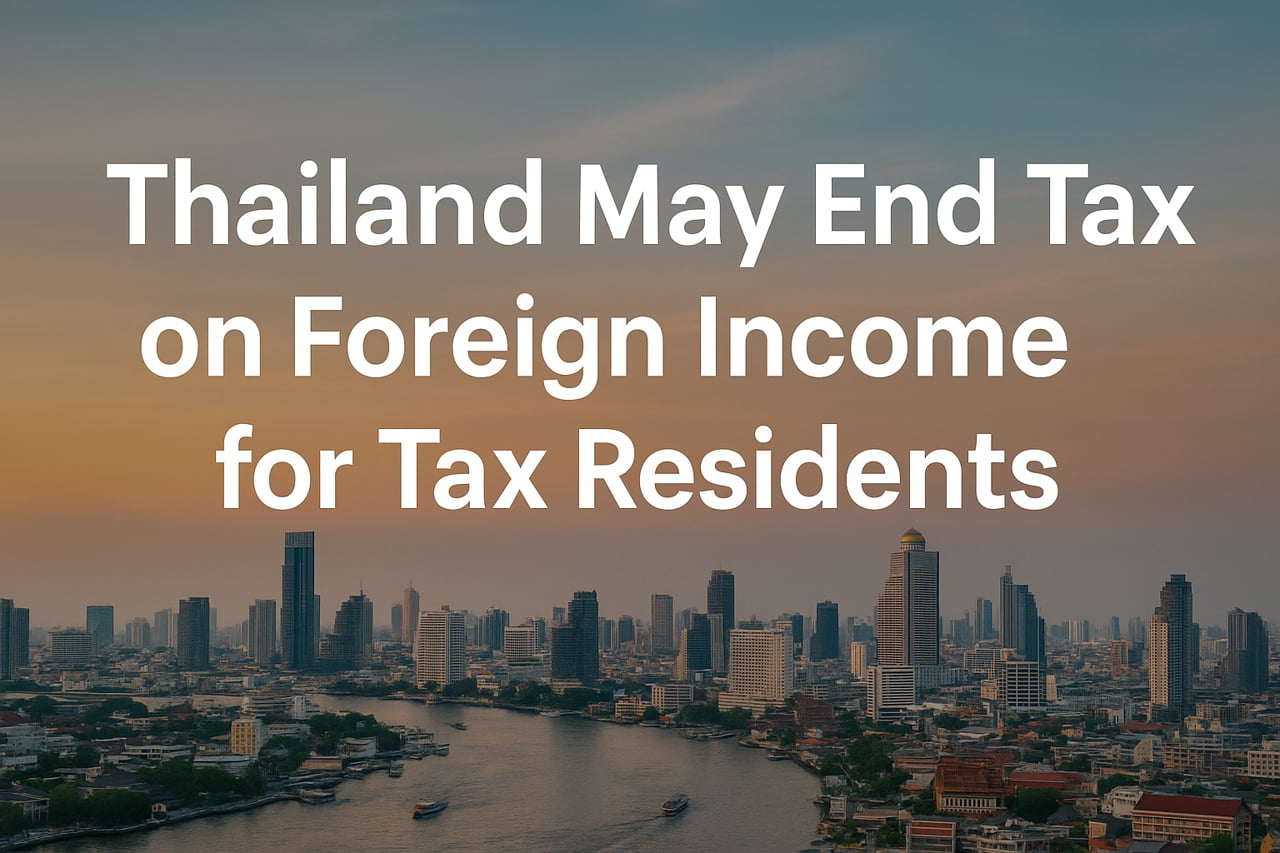
Thailand May End Tax on Foreign Income for Tax Residents
Written by the editors of theo-courant.com, your reference guide to Thailand and South-East Asia - based in Bangkok, at the heart of Thai culture.

Thailand is considering a major tax reform that would exempt tax residents from paying income tax on foreign earnings to boost the national economy.
Thailand Eyes Major Tax Reform
In a bid to strengthen its economy and attract foreign currency inflows, the Thai government is considering ending income tax on earnings generated abroad by its tax residents.
According to Pinsai Suraswadi, Director-General of the Revenue Department at the Ministry of Finance, approximately 2 trillion baht – nearly €53 billion – is currently earned abroad by Thais or long-term residents.
If repatriated, these funds could have a substantial impact on the country’s GDP, with foreign income already representing around 10% of it.
Who Would Benefit?
If approved, the measure would apply to:
- Thai citizens earning income abroad.
- Individuals residing in Thailand at least 180 days per year, who are considered tax residents and currently subject to taxation on all worldwide income.
The clear goal: encourage the repatriation of funds by reducing the tax burden.
Why This Shift?
In Thailand, many local and foreign entrepreneurs invest abroad for higher returns, with the current tax system discouraging them from bringing profits back into the country.
As a result, substantial capital remains overseas.
This is not the first fiscal policy adjustment. Last year, Thailand ended a tax exemption for foreign retirees, initially designed to attract Western expatriates with favorable tax conditions.
Including Cryptocurrency Gains
Another key aspect of the reform would be a tax exemption on capital gains from the sale of digital assets or cryptocurrencies.
Approved by the Cabinet on June 17, 2025, this measure would apply retroactively from January 1, 2025, until December 31, 2029.
This move follows global trends, particularly in the United States, where cryptocurrency taxation is seen as a strategic economic tool.
What’s Next?
If the tax on foreign income is abolished, Thailand could become one of the most fiscally attractive Asian countries for its own residents.
However, discussions remain on balancing the national budget, preventing tax evasion, and ensuring that the measure boosts local investment.
Key Points
- Still a proposed measure, not yet approved.
- Targets Thais and tax residents.
- Includes a cryptocurrency tax exemption.
- Goal: stimulate GDP and boost domestic investment.



